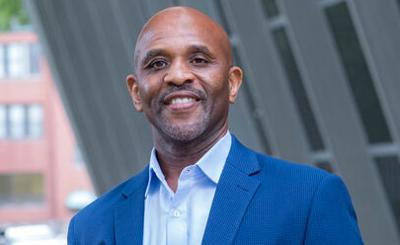
Jerome Morris, the E. Desmond Lee Endowed Professor of Urban Education at UMSL, was named the recipient of the Lyle M. Spencer Research Award. Morris has studied the impact of school reforms, as well as the links between race, social class and the geography of educational opportunities and Black communities in the South for more than 20 years. He will use the $1 million prize to investigate his theory of communally bonded schooling in three local school districts.
A good general operating principle is when someone you don’t know offers you something you didn’t ask for and they don’t use, your safest answer is, “Thank you, but no thanks.” It’s particularly important to observe this principle if you’re Black in America and the people making the offer are white and have generally been in active opposition to just about everything you think is important for your well-being.
Nothing is more illustrative of this than the discussion around education reform and the role of charter schools and choice. Charters and/or choice are two things that white education reformers have advocated for Black children that the Black community never asked for, but white people continue to insist is the answer to the educational success of Black children. However, these same white people are not advocating charters and choice as a way to improve educational outcomes for any white children.
Over the last two decades, educational reform has been a debate among white people about how Black children should be educated. And it’s been a discussion that not only hasn’t had a seat at the table for Black adults, Black adults (that is, the parents of Black children) weren’t even extended an invitation to be in the room.
I am not a defender of the current American educational system for any children and especially not for Black children. The kindest thing you can say about the current model is it’s functionally obsolete and 100 years out of date; think rotary telephone or a computer that uses floppy disks. And nobody needs a better educational delivery system than Black children. But that system, its pedagogy and curriculum must speak to their axiology.
A lawyer takes three things into court: the facts, the law and a theory of the case. While the facts and the law are important and necessary, they are insufficient without a theory of the case. Why is a theory of the case so important? Leonardo Da Vinci probably summed it up best: “He who loves practice without theory is like a sailor who boards ship without a rudder or a compass and never knows where he may cast.”
This is so very true in politics and public policy. The set of normative assumptions, the theory of the case, that creates and guides policy determines what the policy becomes and who the policy benefits or harms. The lack of a rational Black political theory that frames and articulates the reality of Black Americans and provides a vision and direction for a collective way forward is the root cause of our political underperformance. This is never been truer than the policy discussions around urban education and Black children, but there may be the beginning of a light at the end of this dark tunnel.
That light is the announcement that Jerome Morris, UMSL’s E. Desmond Lee Endowed Professor of Urban Education, received the prestigious $1 million Lyle M. Spencer Research Award. Morris has spent the last 20 years studying the impact of educational reform on Black children. This award supports a multi-year research project, “Countering the Unintended Consequences of School Reforms: Communally Bonded Schools, Reconnecting Black Students, Strengthening Communities and Improving Educational Outcomes.”
Morris’ concept of a communally bonded school model speaks to the issue of Black axiology and builds off the historical relationship between the school as an institution and the larger Black community. I would strongly recommend his book, “Troubling the Waters: Fulfilling the Promise of Quality Public Schooling for Black Children.” Building upon the work of Black scholars, from W.E.B. DuBois to Derrick Bell, his work is focused upon a data-driven, fact-based Black theory of educational change. As he explains in the introduction, “Black peoples’ quest for quality schooling is not limited to the integration paradigm but can be placed within a complex ideological understanding of Black political thought.”
A truly impressive element of this project is the team Morris has assembled to assist him: Superintendents Kelvin Adams of St. Louis Public Schools, Art McCoy of the Jennings School District and Joseph Davis of the Ferguson-Florissant School District, along with retired UMSL anthropology and education professor Jackie Lewis-Harris.
I’m particularly enthused by Lewis-Harris’ participation because she’s an anthropologist. One of the acute failings in American public policy is the abject ignorance of policy makers in understanding the totality of what constitutes the human condition. This team has the intellectual bandwidth, integrity and commitment to Black children to lead a project of this magnitude and importance.
They are also renewing an important tradition in Black America: serious Black thinkers and scholars doing the heavy intellectual work to understand, explain and inform the Black community on the Black condition in America. To light a candle, so we don’t have to curse the darkness.
Mike Jones, who serves on The St. Louis American editorial board, was a member the Missouri State Board of Education from March 2011 to January 2020.



















(0) comments
Welcome to the discussion.
Log In
Keep it Clean. Please avoid obscene, vulgar, lewd, racist or sexually-oriented language.
PLEASE TURN OFF YOUR CAPS LOCK.
Don't Threaten. Threats of harming another person will not be tolerated.
Be Truthful. Don't knowingly lie about anyone or anything.
Be Nice. No racism, sexism or any sort of -ism that is degrading to another person.
Be Proactive. Use the 'Report' link on each comment to let us know of abusive posts.
Share with Us. We'd love to hear eyewitness accounts, the history behind an article.